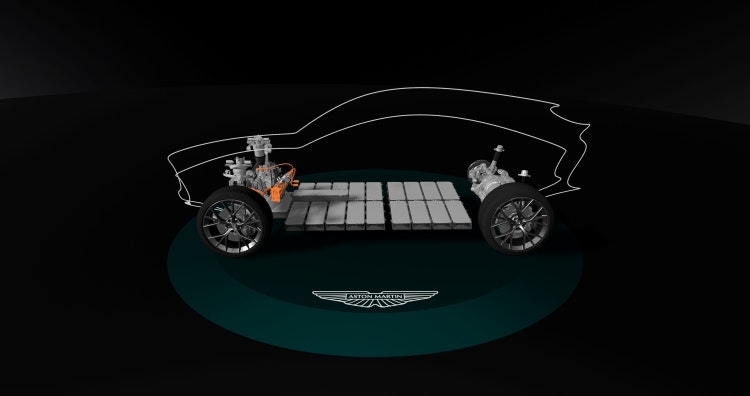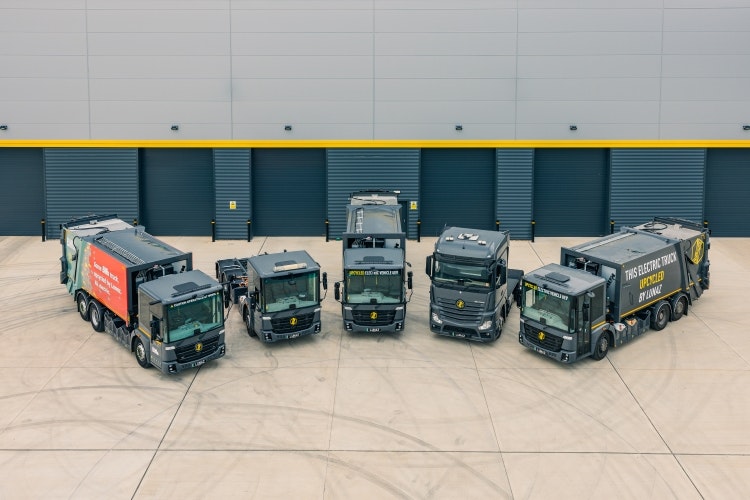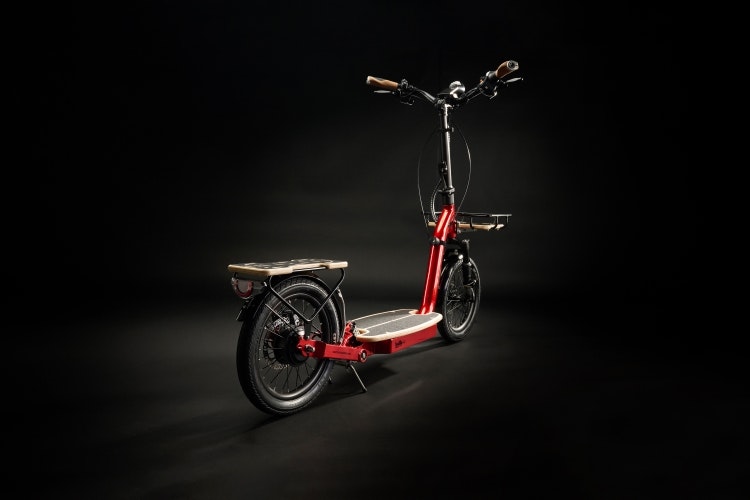The UK Government and the automotive industry have awarded £89 million in funding grants to 20 new electric vehicle net zero projects in a bid to position the UK as a world leader in zero emissions technology.
The funding has been awarded through the Advanced Propulsion Centre UK (APC), a non-profit organisation that facilitates funding to UK-based research and development projects exploring net-zero emission technologies. UK Government has provided £45.2 million of this investment, backed by a further £42.7 million from the automotive industry.
It has been allocated across four collaborative R&D projects, five scale-up projects to assess if businesses in the automotive sector are ready for growth, and seven feasibility studies to scope out plans to develop large-scale manufacturing facilities in the UK.
“From net zero tractors to cutting-edge battery projects, we’re taking decisive action to back the UK’s innovators and ensure we remain at the forefront of zero emission vehicle technology”, says the minister for industry and economic security Nusrat Ghani.
Vehicle lightweighting
Among those awarded is Aston Martin, which was granted £9 million to supplement the research and development of its modular battery electric vehicle (BEV) platform. According to Aston Martin, the grant will establish “a route to net-zero”, which will include investment in “vehicle light weighting, a digital toolchain and electrification training”.

Tests performed by the Insurance Institute for Highway Safety (IIHS) showed that EVs hold up well in a simulated crash due to their heavy batteries, however, the extra weight raised concerns about the potential risk to other drivers. Heavier batteries also lead to an increase in the amount of harmful tyre particles produced by a vehicle and there have already been talk of governments imposing a “tyre tax” to replace the low emission zone charges as more EVs appear on the roads.
A venture titled Project Elevation – supported by six other partners – is part of Aston Martin’s research and development. It will seek to address “the technical challenges of developing a lightweight, 800V traction battery pack and twin front electric drive unit (EDU) into a modular BEV platform with a bandwidth from supercar to SUV”, says Aston Martin.
Discharging EV batteries safely
Design-led, clean-tech group Altilium has received funding for one of the five Automotive Transformation Fund Feasibility Study projects.
Atilium has partnered with Europe’s largest upcycling and vehicle electrification business Lunaz to develop a low-carbon solution for the safe transportation and discharging of end-of-life EV batteries. Using Lunaz’s electrification expertise and proprietary technology, Altilium will work with the company to develop an electric HGV prototype, specifically designed to transport end-of-life EV batteries, which is capable of harvesting and running on electrical energy remaining in the batteries.

Read more: Stilride looks to “industrial origami” for new electric motorbike
The goal is to enable the efficient and sustainable transport of the batteries to Allium’s planned recycling facilities, “with the lowest environmental impact, while also discharging them prior to recycling”, according to Altilium.
“Millions of EV batteries will need to be transported by the next decade for recycling or a second life and we are committed to developing low carbon logistical solutions that can cope with these high volumes of waste and support the development of a domestic circular economy for battery metals”, says Altilium CEO Kamran Mahdavi.
Altilium plans to open the UK’s largest EV battery recycling plant in Teesside in 2026, which will have the capacity to recycle batteries from 150,000 EVs a year.
Safer electric scooters
In addition to the £89 million grant fund, it was announced that further funding would be provided to the winners of the Niche Vehicle Network (NVN) Production Readiness Competition, sponsored by the APC and supported by Innovate UK. This competition provides grant funding to UK SMEs leading the way in sustainable, cutting-edge technology design.

Read more: PDD collaborates with Trojan Energy to create hidden EV charging points
One of the winners was Manchester-based scooter manufacturer Swifty Scooters, which is in partnership with metal fabricator Chasestead and battery manufacturer PMBL. The companies are working to design and develop a UK-made electric scooter which prioritises rider safety and ensures “a long product lifespan by way of premium build quality” by enabling “fix and repair within both the scooter design and battery design”, according to Swifty Scooters.
Swifty Scooters co-founder Jason Iftakhar says they chose to collaborate with a UK battery specialist PMBL to utilise its “latest battery chemistry” called LFP, also known as LiFePO4 or Lithium Ferro Phosphate. As well as the fact that LFP batteries “operate at a lower temperature and are more inherently safe than regular Lithium-ion batteries” Iftakhar adds that they do not contain cobalt, which he describes as a “problematic industry.”

- Design disciplines in this article
- Industries in this article
- Brands in this article










